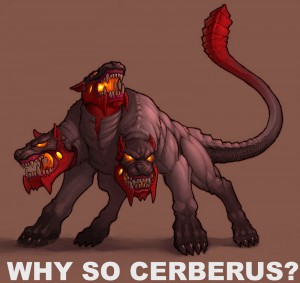 Why are protagonists the serious ones in the fight? The partial explanation, of course, is that the villain sees a minor breach of scruples, like kidnapping or murder, as a means to a grander end. The protagonist’s outrage is a source of the villain’s distracted amusement.
Why are protagonists the serious ones in the fight? The partial explanation, of course, is that the villain sees a minor breach of scruples, like kidnapping or murder, as a means to a grander end. The protagonist’s outrage is a source of the villain’s distracted amusement.
The hero’s end, the intrinsic value of a human qua human, does not suffer the grand schemes of the villain’s global, “higher end” morality. The villain seeks a nobel goal for humanity at large; the hero denies such abstractions and knows saving the human race is a series of small salvations for individual humans within his reach: the gunpoint hostage, the child trapped in a burning building, the unfortunate addict.
Anti-heroes are villains searching for heroism. Through a series of encounters the morality of the anti-hero’s world eventually becomes breached. Reconciliation involves jettisoning a flaw to install a virtue.
Spike Spiegel, from the Cowboy Bebop series, reconciles his organized crime-ridden past by hunting bounty. Throughout the series he is the consummate anti-hero except when he faces off against the other two components of a love triangle from his former career, Vicious and Julia. The bounty hunter life is externalized and impersonal, but the morality of his own world is compromised and that’s when Spike gets serious.
Notice the different attitudes Spike has in these two videos. The first clip is a fight from the first episode, where he attempts to capture the targeted drug dealer with his characteristic bravado. The second is the lengthy showdown with Vicious and Spike’s former gang and you will notice a switch has been flipped.
Spoiler/content warnings, especially in the second clip.